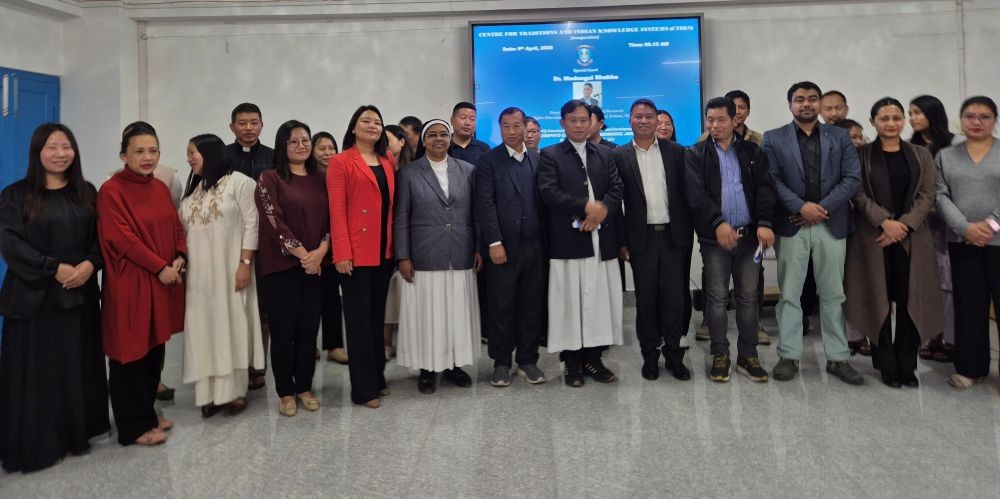Centre for Tradition and Indian Knowledge System was launched at St Joseph’s College (A), Jakhama on April 9.

Jotsoma, April 9 (MExN): The inauguration programme for Centre for Tradition and Indian Knowledge System (CTIKS) was held in conference hall of Post Graduate Block, St Joseph’s College (A), Jakhama on April 9.
Dr Medongoi Rhakho, Deputy Director (Academics and Research), Higher Education, Government of Nagaland was the guest of honour.
In his address, Dr Rhakho reflected on the interpretation of the Indian Knowledge System as outlined in the National Education Policy (NEP) 2020. He emphasised that the policy does not restrict learning of Hinduism or a singular Indian-centric perspective, but instead encourages the inclusion of diverse indigenous knowledge systems. He advocated for the recognition and integration of what he called the “Naga Knowledge System,” which allows tribal communities to embrace and preserve their own traditional wisdom.
Dr Rhakho illustrated this through a personal anecdote regarding an irrigation project in a hilly area. He recounted how traditional knowledge passed down from his father advised against digging deep into the soil to avoid water loss due to the presence of stones.
He commended St Joseph’s College (A), Jakhama for pioneering such an initiative and expressed hope that the Center would inspire progressive developments within the higher education system.
Further, he discussed how the NEP aims to move away from a rigid, secular model of education towards one that values indigenous and cultural knowledge. He emphasized on the importance of documenting and preserving traditional practices and integrating them with modern education. Citing examples, he mentioned the traditional pottery craftsmanship of Phek District and the making of gunpowder in Konyak regions, suggesting these as potential subjects for students’ skill enhancement courses.
Dr Rhakho also underlined three core values that traditionally guided Naga society “danger (fear)”, “taboo”, and “shame” and noted how these principles were closely aligned with teachings such as those found in the book of the Bible, Matthew 7:12.
He advocated for the inclusion of mandatory internships where students would be encouraged to visit villages and immerse themselves in their native culture and traditions. Drawing a parallel with educational initiatives in China, he emphasized the need for similar models in Nagaland to bridge traditional knowledge and contemporary education.
The programme was attended by teachers, Management Board members, students and guests.






